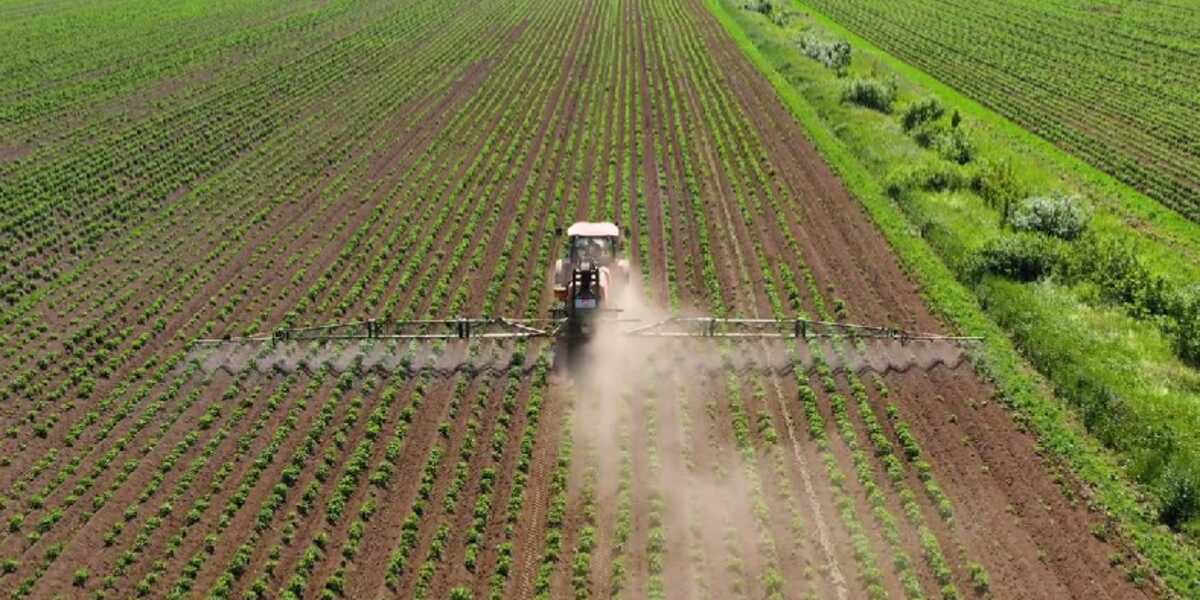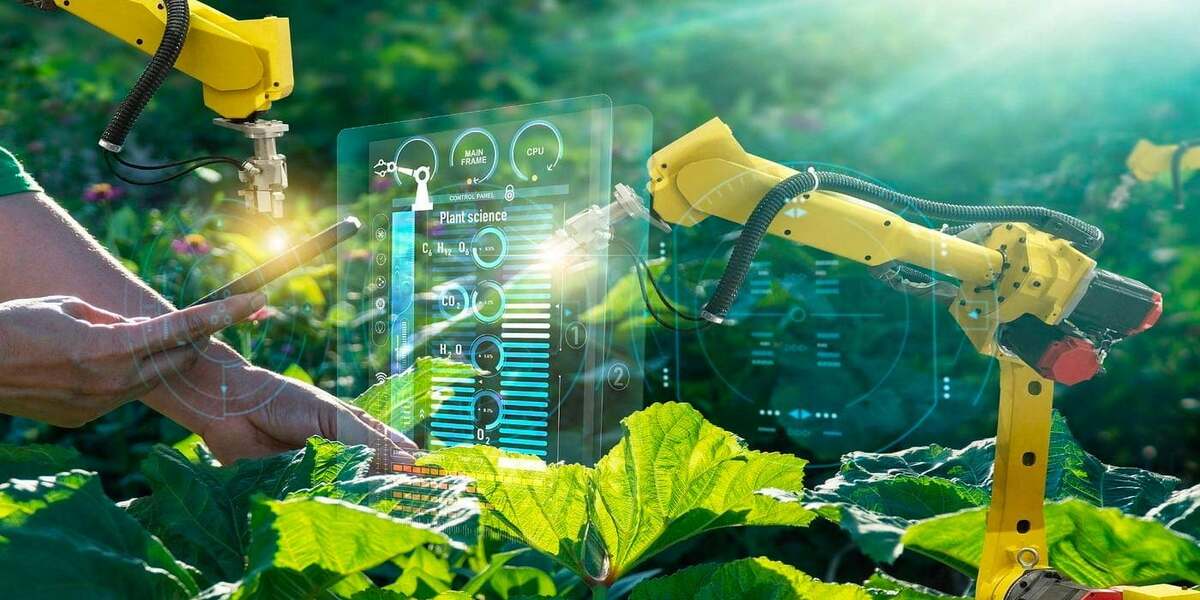Introduction:
Indian agriculture is a dynamic landscape that has witnessed infusion of cutting-edge technology that is reshaping the traditional practices. In this case, Artificial Intelligence (AI) stands out as a game changer, especially when it comes to precision pesticide application. This paper looks at the multiple applications and benefits and challenges that come with integrating AI into pesticide management thus giving a glimpse of what could be transformed in Indian agricultural sector. (AI in Precision Pesticide Application for Indian Agriculture)

Current Challenges in Pesticide Application:
Pest management has always been critical to farming in India. Most conventional techniques involve broad- spectrum pesticides which have raised environmental concerns over resistance and economic hardships to farmers. The quest for more accurate and sustainable ways of doing things, therefore, led to experimentation using artificial intelligence to revolutionize pesticides applications.
Applications of Artificial Intelligence in Precision Pesticide Application:
- Data-Driven Pest Identification:
- Artificial Intelligence uses complex algorithms to scrutinize huge data sets covering pest habits, crop types and environment conditions. These schemes can accurately recognize pests by identifying patterns or correlations, thus placing them into certain categories so as to facilitate targeted pesticide application.
- Smart Sensing Technologies:
- This smart sensor integration combined with Artificial Intelligence allows for the pest activities to be monitored in real time. It predicts the pest outbreak early by sensing slight changes in environmental parameters. This will help determine the correct spraying decision as per dynamic data.
- Predictive Analytics for Pest Infestation:
- Through leveraging historical and real-time data, AI can predict pests’ invasion with great precision. Looking at things such as climate patterns, crop cycles and pest life-cycles, predictive models enable farmers to proactively plan for and apply exact pesticide strategies.

Credit: adobe.com
- Autonomous Pesticide Spraying Systems:
- Drones that are fitted with AI-based systems are a game changer when it comes to pesticide usage. They utilize current data to identify areas infested by pests and administer pesticides at precise points thus reducing human interaction and maximizing use of resources.
Benefits of Artificial Intelligence in Precision Pesticide Application:
- Environmental Sustainability:
- The intelligent application of pesticides significantly reduces the environmental footprint by concentrating on specific areas of infestation. By so doing, this helps minimize total pesticide use, reducing risks of soil and water contamination, thus promoting a more sustainable agricultural ecosystem.
- Resource Optimisation:
- Systems powered by artificial intelligence can be used to make best use of available resources including pesticides, water and energy. This system helps farmers effectively control pests with minimal costs and conserve the most important input.
- Enhanced Crop Quality and Yield:
- The application of pesticides in a timely manner and as required improves crop quality and yield. Farmers also ensure they have a healthy harvest that has economic benefits when they adopt this approach which helps prevent wide spread pest damage leading to increased food security.

Credit: adobe.com
- Economic Efficiency:
- Although the initial implementation of artificial intelligence technologies may require some investments, their long-term economic efficiency is obvious. The pest management strategy becomes more affordable and sustainable due to lower operational expenses, reduced pesticide usage as well as increased productivity levels.
Challenges and Considerations:
- Adoption Barriers:
- There are barriers to wide-spread adoption of AI technologies in agriculture such as start-up costs, low awareness levels among farmer communities, and inadequate technical availability. A comprehensive government support, industry initiatives and educational programs must address these challenges fully.
- Data Security and Privacy:
- Issues about data security and privacy emerge from large-scale agricultural data collection and analysis for precise pesticide application. It is imperative to put in place strong protocols and regulatory frameworks that will safeguard farmer’s as well as agricultural data.
- Skill Development:
- To harness the full potential of Artificial Intelligence in pesticide application, farmers need adequate training. Skill development programs and educational initiatives are vital to ensuring that farmers can effectively operate and understand these advanced technologies.
- Interoperability and Standardisation:
- It is critical to ensure the interoperability and standardization of Artificial Intelligence (AI) technologies in order to seamlessly integrate them into various agricultural contexts. Allowing for technology providers and agriculture stakeholders to partner would encourage standardized methods.
Conclusion:
Artificial intelligence has come up with a new way of applying pesticides by transforming pesticide application systems for Indian agriculture. With its precision, efficiency and sustainability in pest management practices, it offers an opportunity for transformation.
This is not without challenges but the possible advantages accruing to farmers, environment as well as other players in the agricultural ecosystem puts underlines the importance of continued research investment while embracing collaboration between different players’.
FAQs for AI in Precision Pesticide Application for Indian Agriculture
Frequently Asked Questions
How does Artificial Intelligence contribute to minimising the environmental impact of pesticide application?
AI can help reduce environmental impact through targeted pest identification that results in reduced use of pesticides across areas affected by pests. In such a case, this method helps minimize damage on our environments thus decreasing chances of soil and water pollution.
What role do smart sensing technologies play in intelligent pesticide application?
When combined with AI, smart sensing technologies provide real-time monitoring of pest movements. These tools enable us to track shifts occurring in weather patterns or any changes leading up to diseases that may necessitate intelligent use of insecticides.
How can farmers ensure data security and privacy when using Artificial Intelligence for pest management?
Data security and privacy must be ensured through stringent protocols and rules implementation. It is crucial to essential secure storage systems and promote awareness among farmers regarding the importance of safeguarding their data in the context of Artificial Intelligence applications.

